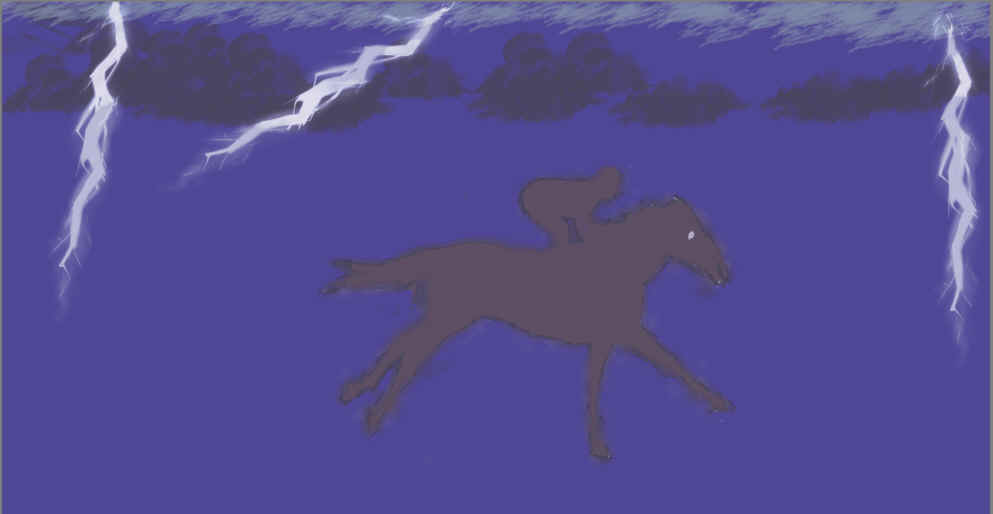

(Erlkönig, Painted by Cemil Otar, February 2022)
Erlkönig:
Johann Wolfgang von Goethe (28 August 1749 - 22 March 1832) is the great German poet, playwright, novelist, scientist, statesman, theater director and critic.
In Grade 7, in our German Literature class, we all had to memorize and recite one of his greatest poems, "Erlkönig". There are various different interpretations of it, but I will describe here how our teacher explained to us then.
Story: A father is rushing his sick son to a doctor at the court. They are riding on a horseback at night and during bad weather. The boy is sick and delirious. The father tries to keep his boy safe and warm. The boy starts seeing and hearing Erlkönig. The father does not see or hear it. In our class, our teacher explained us that the meaning of Erlkönig in this context as the angel of death, Azrael. Erlkönig tries to lure the boy, the boy is scared, the father tries to calm his boy and holds him tighter. He gallops his horse as fast as he can. When they arrive at the court, the father realizes that his son is no longer alive, Erlkönig won.
For fellow writers: This story is about a father struggling to keep his baby alive. It is actually a metaphor for life, the hopes we carry with us along our journey. When you are writing, you are the single parent to your stories that you are trying to create and raise. There will be many obstructions all the time, around you and within you. These will try to kill your story. Keep going, because it is only you, the writer, who has any hope of giving life to your stories allowing others to see them, to feel them.
There are several different translations of Erlkönig out there. Some are literary translations; some have more soul added, and some have been translated for more theatrical flair. I wanted to see this beautiful poem in English in a different spirit:
1. A translation of words (and their meanings) that are more understandable to me with no higher education in literature, and
2. A translation of emotions (and how they are expressed) from the 18th century German to emotions as would have been expressed in current English.
So, that is what I tried. Here is my version, below. Note that, I left the title in German because translating it to English would be meaningless.
ERLKÖNIG
Who is riding this late through night and gale?
It is the father with his child.
He holds the child in his arm,
He clasps him safe, he keeps him warm.
- My son, why are you hiding your frightened face?
- Daddy, don't you see the Erlkönig?
That Erlkönig with the crown and tail?
-My son, it is a patch of fog.
-My dear child, stay with me, come!
We will still play many great games;
Colourful flowers bloom on the beach,
My mother has golden robes for you"
-Daddy, Daddy, don't you hear it
That the Erlkönig is softly promising to me?
-Be calm, stay calm, my child;
It is the wind that sighs through dry leaves
-Will you come with me, dear son?
My daughters should be already waiting for you;
My daughters run the nightly dance,
And they will sway and dance and sing you in.
-Daddy, Daddy, and don't you see over there
Erlkönig's daughters, in that dark place?
-My son, my son, I see it all right:
It is the shimmer of old, gray willows.
"I love you; I am charmed by your beautiful essence;
And if you're not willing, then force, I will use."
-Daddy, Daddy, he's grabbing me now!
The Erlkönig is hurting me!
Horrified, the father gallops faster,
Clutching in his arms his moaning baby,
He arrives at the courtyard with great despair;
In his arms, his son , dead.
Johann Wolfgang von Goethe, 1782 (translated by Cemil Otar, 2022)